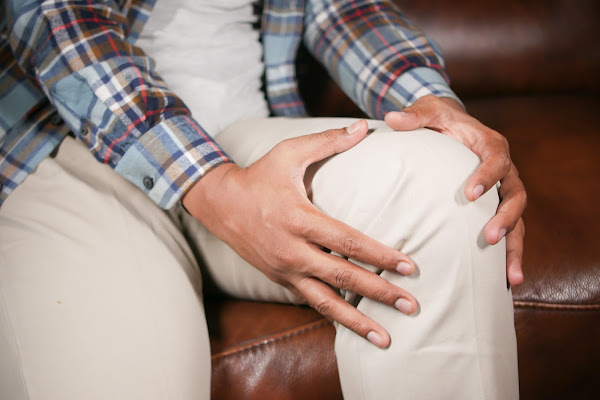1. Understand the Surgery and Recovery Process
Surgery can be a stressful and intimidating experience, but having knowledge and preparation beforehand can alleviate some of that anxiety. During the surgery, you will be under anesthesia and won't feel any pain. Your surgeon will make incisions to access the affected area and repair any damage. Recovery time varies depending on the type of surgery and severity of the injury, but it's crucial to follow the post-operative instructions given by your healthcare provider to ensure a successful recovery. Moreover, having partial knee replacements can cut down recovery time significantly - with some patients returning to their regular activities within two or three weeks. Don't hesitate to ask your doctor any questions and address any concerns you may have. Remember, we are here to support and guide you through this process.
2. Set Realistic Goals
It's natural to want quick results, but it's important to remember that sustainable progress takes time. By setting achievable goals, you'll not only avoid disappointment and frustration but also increase your chances of success. It's important to think about what you realistically can and can't do, given your current circumstances. Whether it's quitting smoking or starting an exercise routine, aim for progress, not perfection. Remember that setbacks happen, and that's okay. The key is to keep moving forward and not give up on yourself. With a little patience and perseverance, you'll be amazed at what you can accomplish.
3. Exercise Regularly To Strengthen Your Knee
Many people believe that rest is the key to healing knee pain, but in reality, movement is key. The experts working at Pillars of Wellness can explain how regular exercise not only helps to build strength in the knee joint, but it also helps to improve flexibility, which in turn can reduce the risk of further injury. Activities such as cycling, swimming, and yoga can all be beneficial in improving knee health. With these activities add joint supplements like JointXL Plus or Arthrozene to your routine, both supplements help to strengthen knee joints and improve overall joint health. If you're experiencing knee pain or weakness, speak to your doctor or physiotherapist about exercises that specifically target the knee joint. With dedication and consistency, exercise can be one of the most effective ways to improve knee strength and prevent future injuries. Use a muscle and joint pain relief cream to ease some soreness symptoms.
4. Eat Healthy to Support Knee Recovery
Your body needs specific nutrients to heal and restore itself, and a diet focused on whole foods can provide those necessary elements. It’s easy to fall into the trap of relying on processed and convenience foods, but these options are often lacking in the vitamins, minerals, and healthy fats that your body craves. Instead, opt for foods high in protein, such as lean meats and legumes, which can help to promote healing and build muscle. Add in plenty of fruits and vegetables, which are packed with antioxidants, and healthy fats like avocados and nuts. By nourishing your body with the right foods, you can give yourself the best chance at a full and speedy recovery.
5. Practice Proper Posture and Body Mechanics
As a healthcare professional, I cannot stress enough the importance of practicing good posture from a young age to avoid issues later on in life. Poor posture and body mechanics can cause a multitude of problems, including back pain, headaches, and even digestive issues. It is crucial to stand up straight, keep the shoulders relaxed, and distribute weight evenly on both feet. Maintaining proper alignment while sitting and engaging in physical activities is equally important. As a doctor, I urge you to take the necessary steps to practice proper posture and body mechanics to live a healthier and more pain-free life.
6. Wear the Right Shoes
The right footwear can make a world of difference in how your body moves. When it comes to knee pain, wearing shoes that provide proper arch support and cushioning can help to reduce strain on the joint. Good shoes should fit snugly but still allow enough room for toes to wiggle freely - if they are too tight or too loose, the body may not be able to move freely or naturally. Before making a purchase, it’s important to do some research and find out if a particular shoe is right for you and your needs.
7. Seek Professional Advice/Constantly Consult with Your Doctor
If your knee pain is persistent or severe, it’s important to speak with a healthcare professional. They will be able to provide more in-depth advice and potentially recommend physical therapy or other treatments that may help to reduce the intensity of your symptoms. Even if it doesn’t seem like there is an immediate solution, talking with a doctor is still the best way to ensure that you are receiving the right care and support.
Ultimately, knee pain can be a difficult battle but with the right tools in place, it’s possible to manage your symptoms and improve your quality of life. Take the time to understand what works for you and don’t hesitate to reach out for help when needed. With dedication and patience, you can find the relief you need. More importantly, you can continue to move towards a healthier and happier future.





.png)



No comments
Thank you for dropping by! I would love to hear what you thought. :)
Thanks!
♥,
Diana